You may feel secure knowing that your Panasonic air conditioner is a piece of high-quality equipment. However, it is not failure-free, just like any electrical system.
The issue may occur when the Panasonic air swing is not working.
Why does this kind of problem happen, and what fixes do I need to perform to resolve it? Well, we have done plenty of research and have the answers below!
There are two possibilities if the Panasonic air conditioner air swing isn't working. The air conditioner system uses a separate motor to control the swing's movement.
Either the PCB fails to supply enough current to the motor, or there's a problem with the motor itself. You can inspect the motor's wiring to verify if this is the issue or replace it entirely.
However, we strongly suggest you consult your AC specialist. They can properly assess the issue and fix it with quality assurance.
For a thorough examination of the potential reasons for your Panasonic ACs going bad, keep reading. Additionally, we'll discuss how to optimize your Panasonic air conditioner's operation. Let's begin!
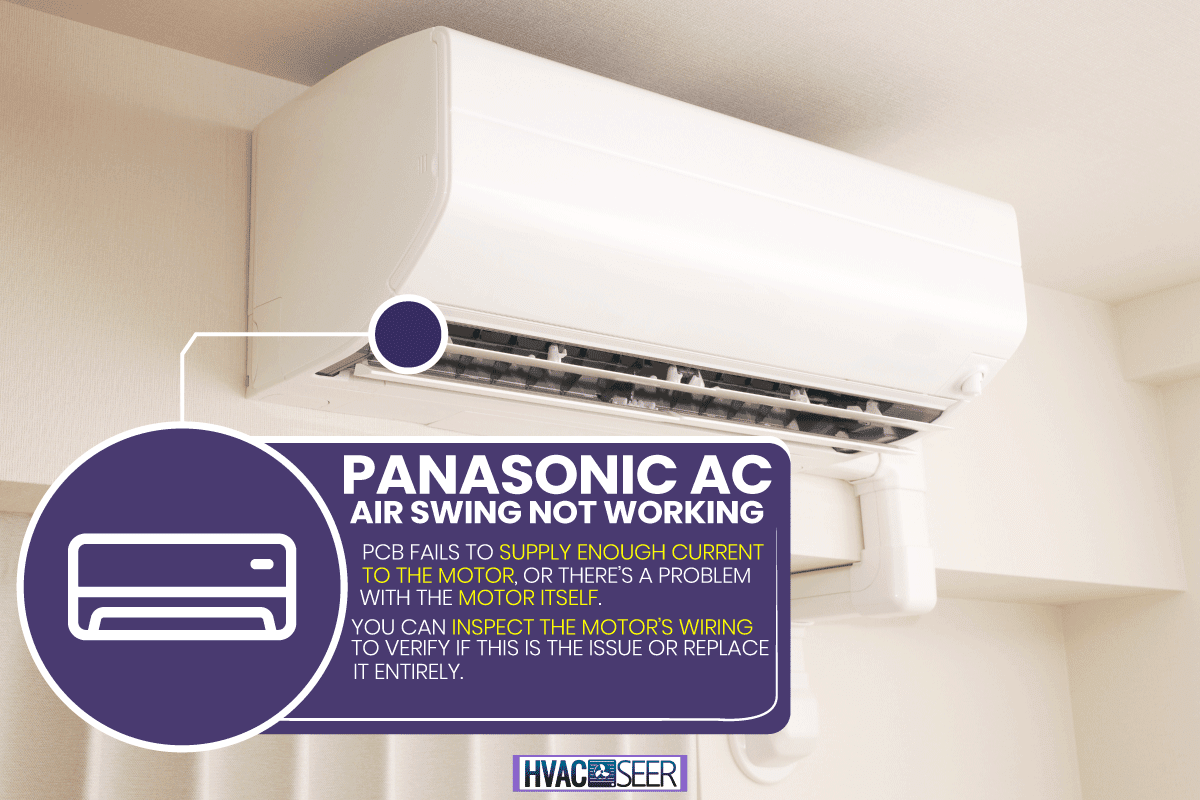
What Causes A Panasonic AC To Stop Working?
Panasonic air conditioners are very dependable appliances.
However, they ultimately run into problems, like any other appliances. Quick fixes are available if your Panasonic air conditioner isn't functioning correctly.
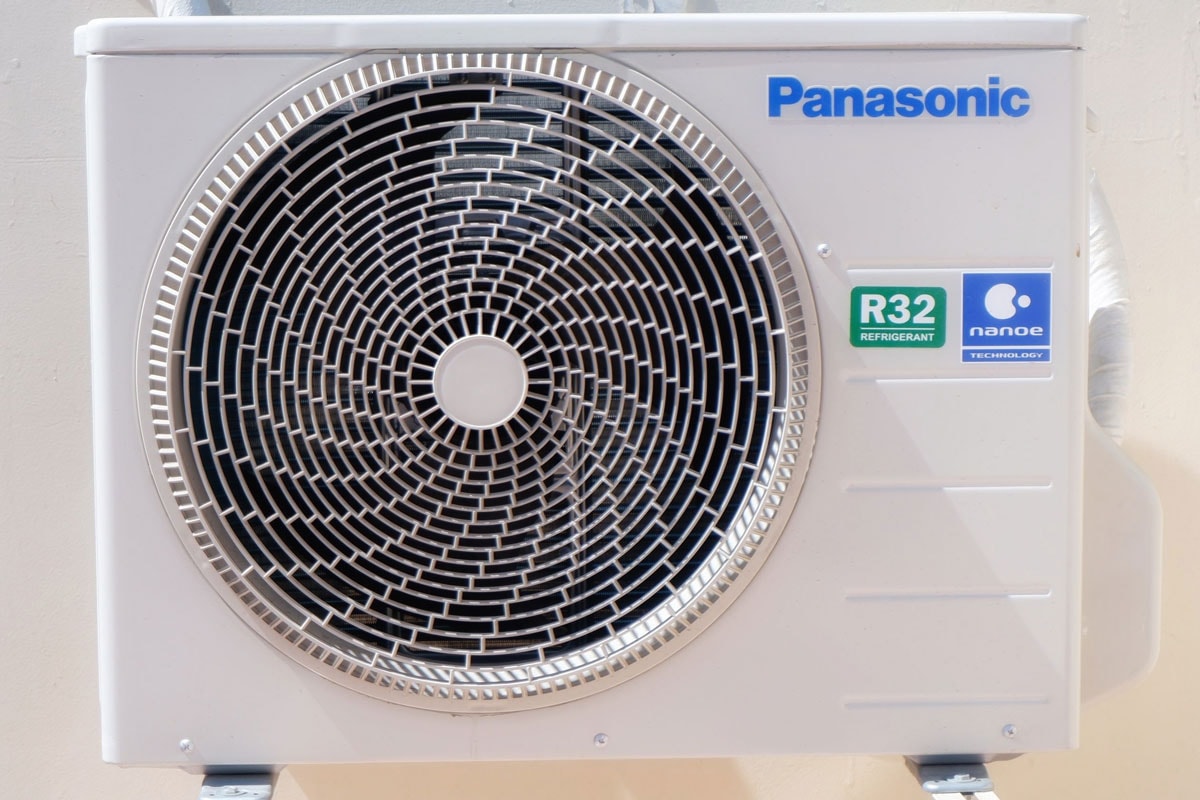
The following are the most common issues that cause your Panasonic AC to fail:
Dirty Condenser Coil
The condenser coil plays a crucial role in releasing heat when the refrigerant passes the coils. If you run the air conditioner with a dirty condenser coil, heat will not dissipate as easily as usual.
As a result, it will have to work harder to deliver your cooling desire, thus reducing its service life.
Faulty Thermostat Sensor
The thermostat keeps track of the temperature before turning on the fan's power and compressor. If the thermostat sensor malfunctions, the system can't reach the ideal temperature required.
Over time, This will result in your air conditioner's early breakdown. Furthermore, ensuring that the thermostat wires align with the sensor will prevent this problem.
Condensate Drainage Issue
Check your air conditioner's condensate drain line during humid weather to ensure it's draining properly.
Moreover, improper condensate drainage may result from incorrect air conditioner installation.
Dirty Air Filter
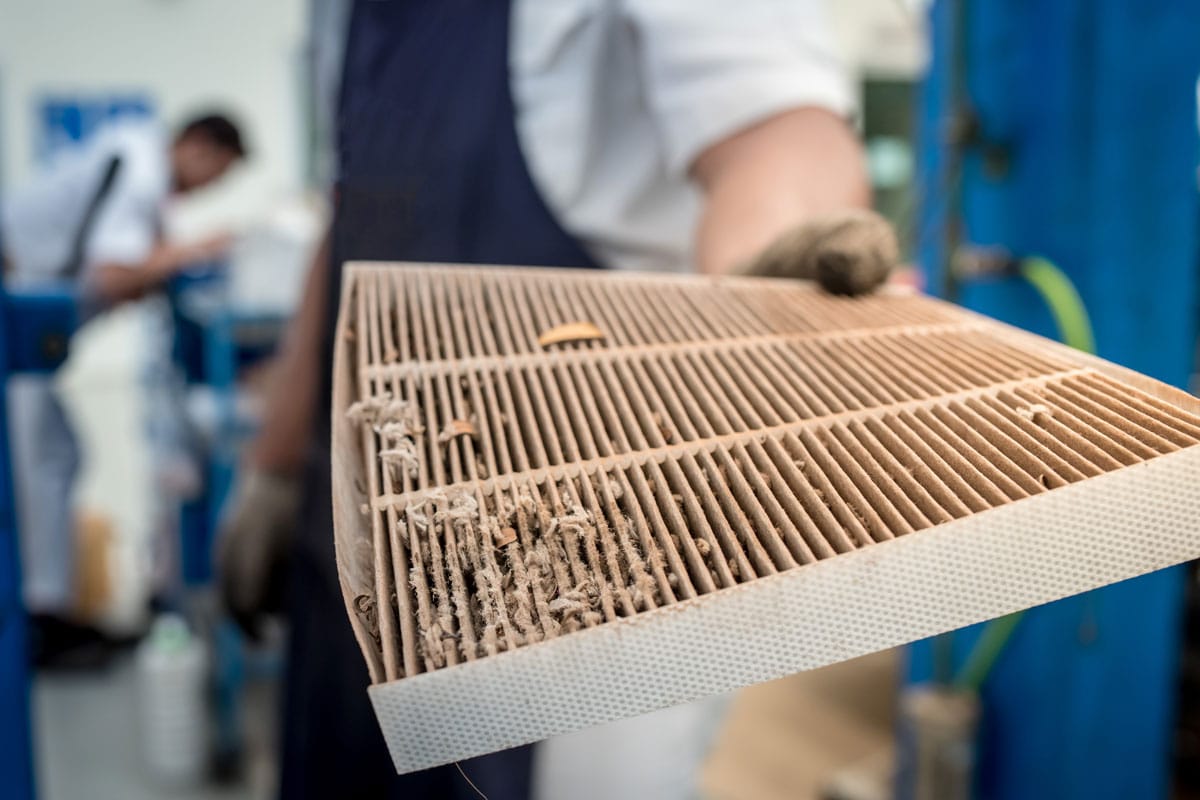
When dirt and dust develop in the air filters, this might prevent airflow in your AC system. This will make the air conditioner less useful and efficient.
In time, the AC's evaporator coils will also freeze due to blocked airflow.
Cleaning the air filters might help resolve this issue by removing the dust and debris. You can avoid damaging your Panasonic cooling system by cleaning its filter every 15 days if they are seriously dirty.
How Do You Clean The Panasonic Air Filters?
Homeowners may undertake one of the most basic air conditioner maintenance tasks cleaning their air filters. Regular cleaning will prevent your AC from any serious problems that may occur in the future.
To correctly clean the air filter, you must:
- Remove the front panel of your Panasonic air conditioner.
- Pull out the dirty filter.
- Wash it properly with fresh water and a sponge.
- Rinse the filter and ensure it is clean and dry before reinstalling.
- Avoid drying its front panel directly to the sunlight.
- Now securely attach back in place the front panel.
What Are Some Ways To Make A Panasonic Air Conditioner Work More Efficiently?
If you are using a Panasonic air conditioner, you should always be mindful of how to make its operation effective and efficient.
This will help the unit to prolong its lifespan and functionality to its fullest.
Maintain your air conditioner units having regular servicing every six months. It's ideal for your Panasonic to undergo this process to ensure it will constantly serve you the comfort you need.
The routine service includes checking the system's refrigerant levels, inspecting whether the cooling system has leaks, and thermostat calibration. Also, Panasonic advises its users not to short cycle their air conditioner units.
They added that it is best not to switch OFF and ON the AC unit immediately. You should always allow the system to rest for about 10 minutes when turning off the air conditioner.
Doing so will help the system works in balance again.
Why Is My Panasonic's AC Remote Not Responding?
Using remote control in your air conditioner will simplify how you want it to operate. When the remote control acts strangely or doesn't respond, this will surely ruin your inner peace of mind.
There are two primary causes why this issue shows: its batteries reaching their limit and faulty infrared sensor. Fortunately, you'll find easy fixes on them by replacing the batteries and remote.
If replacing the batteries doesn't fix the issue, you can still handle the air conditioner manually. Most likely, your remote control may become defective and needs a replacement if you suspect it is broken.
See this Panasonic AC remote on amazon.
Contact your nearest Panasonic dealership to replace your remote so you can control your AC again freely.
NOTE: Your remote only works, or its infrared receivers range limit is within 20 feet.
Why Is My Panasonic Air Conditioner Making Weird Noises?
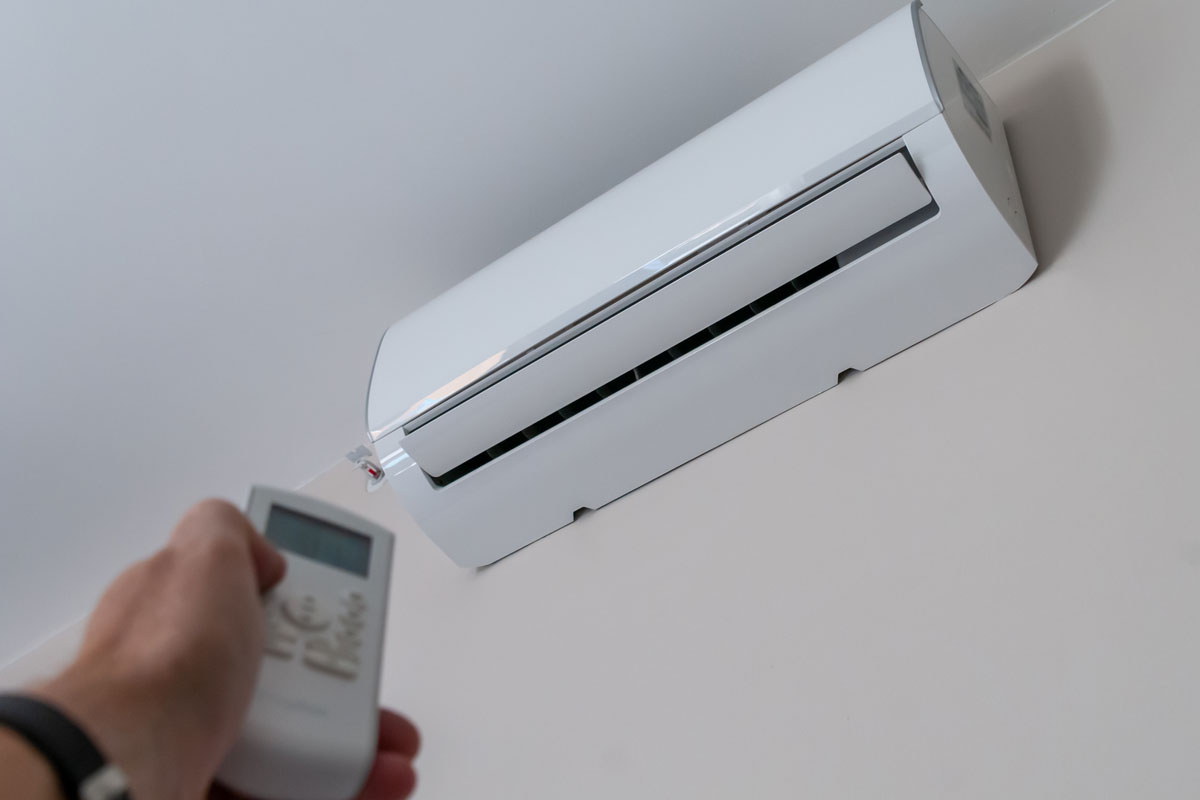
Many homeowners have an air conditioner that makes weird noises. Sometimes, this could be a dismal circumstance. Even this reputable brand doesn't make it free from this issue occasionally.
Below are some common causes of a Panasonic air conditioner unit making noise.
Issues In Return Or Supply Air Vents
Air conditioners draw the heated air and cool it down before sending it back into your space. This process will not be possible to achieve if these vents are dirty or so being hindered.
In addition, this odd noise indicates that your AC unit is facing problems with the system setup or sensors.
Sudden Changes In Thermal Levels
In severe weather conditions, the air conditioner can potentially be rather noisy. For instance, the Panasonic air conditioner will create noise when operating in a warm environment.
This is because it exerts more effort to deliver cool air to the space. On the other hand, when operating in cold weather, the air conditioner will also make noise.
Older Air Conditioning Unit
All appliances have their limitations. The air conditioner unit will eventually make a noise when it gets older. This will present in humming, buzzing, or even banging noise.
This is pretty common in old AC unit parts being loosened up.
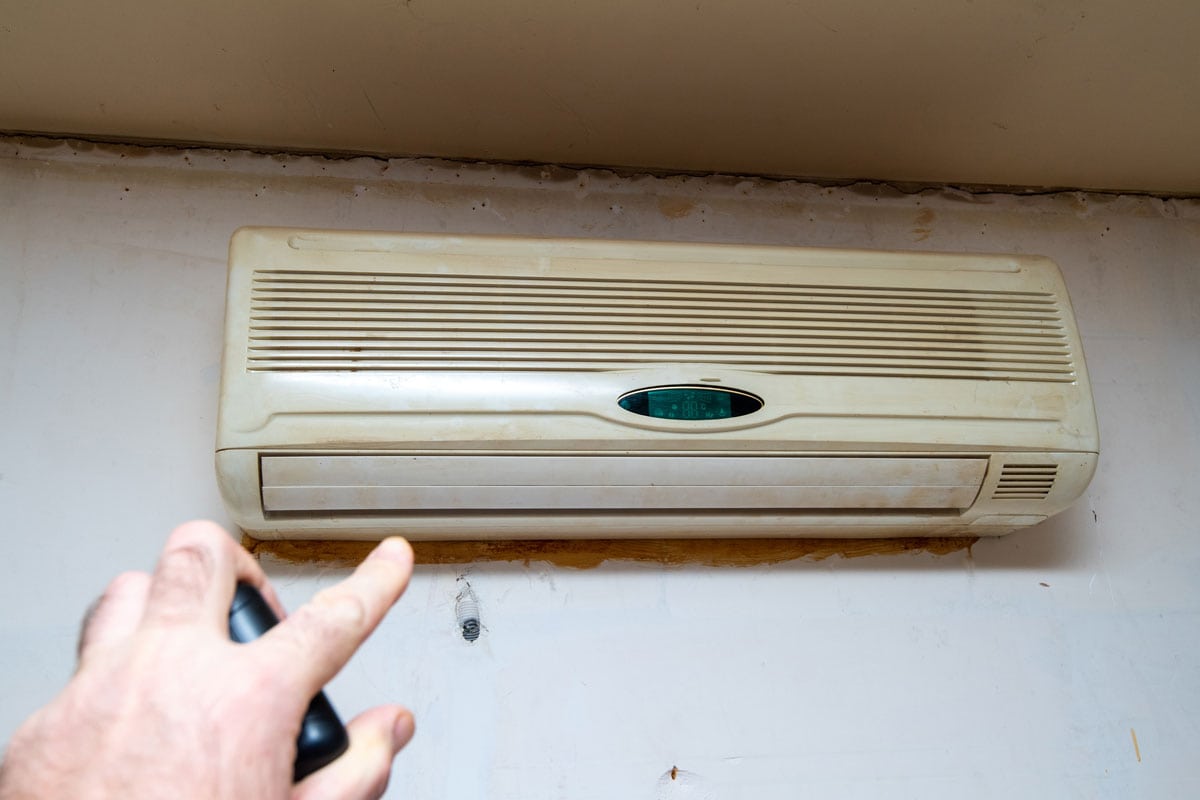
What Are The Most Common Fault Codes For Panasonic Air Conditioners?
You should inspect the error codes in your air conditioner right away. This code implies that your AC unit needs immediate attention for specific codes that appear in the panel.
Here below are the most common error codes of Panasonic's air conditioner and their issues:
- Error Code H11 - This error code appears when data communication is not established.
- Error Code H15 - Compressor reaches an abnormal thermal level or short circuit; this will pop up.
- Error Code H19 - Indicates that the system interior fan motor is in lock mode.
- Error Code F95 - System detects abnormal outdoor cooling pressure; this error code will show.
- Error Code H97 - The system exterior fan motor is in lock mode.
How To Fix A Panasonic Error Code With A Remote
This process might sound complicated, but you can do this in a matter of minutes. Kindly follow our easy steps below to get and identify your Panasonic error code:
- Tap and hold the CHECK key in your remote for about 5 seconds.
- Tap and hold the timer key.
- Tap the screen key to display the error code and power light sign.
- Once the air conditioner power light is flashing with a beeping sound, the error code will show.
- You can now press and hold the check key again for 5 seconds to exit the error code query mode.
In Closing
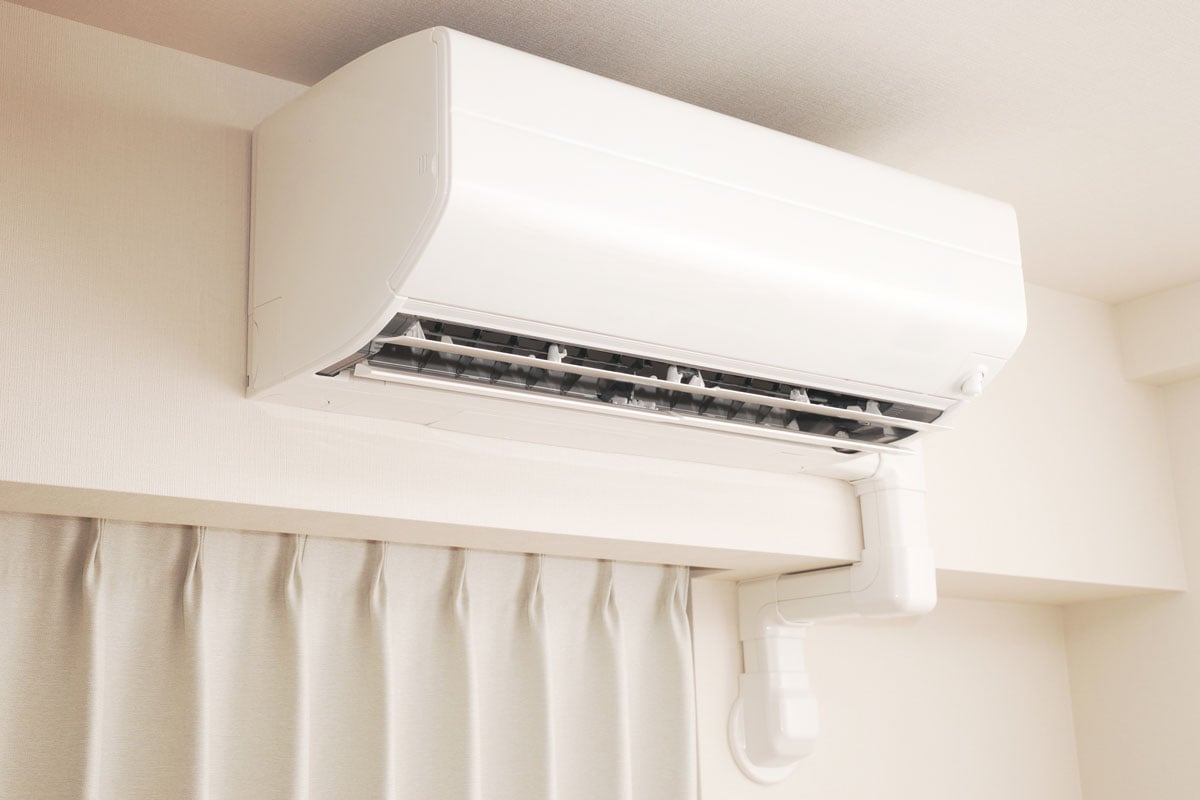
Even the most reliable and iconic air conditioner in the world, Panasonic, is not safe from sudden issues or breakdowns. So it's best to keep your AC unit adequately serviced regularly to avoid the major problem from occurring early on.
We are optimistic that you can now care for or fix the most common problems with your Panasonic air conditioner unit.
Made it this far? Check out these related HVAC posts below!

